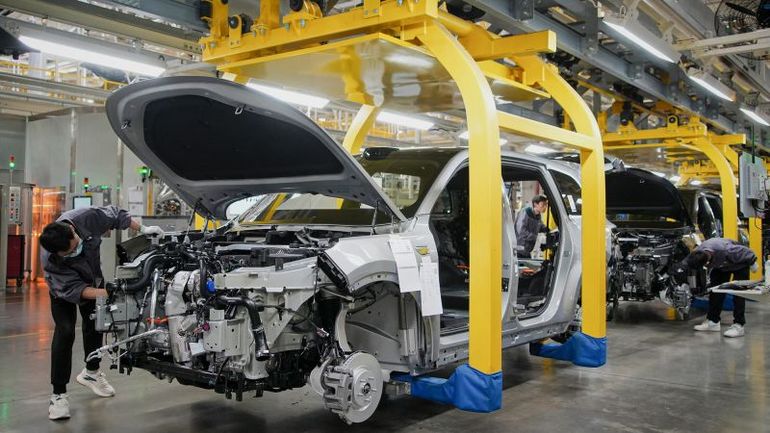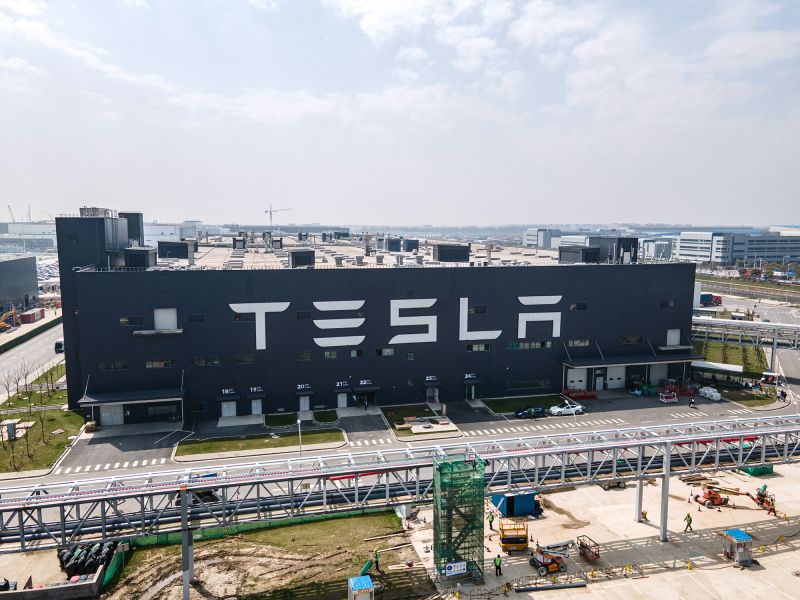
IEA Reports Positive Outlook for Electric Vehicle Growth

The International Energy Agency forecasts a significant uptick in global electric vehicle sales, projecting a 20% increase to 17 million units in the current year. The surge is largely attributed to the growing adoption of electric cars in China, signaling a promising trend towards a sustainable transportation future.
Global electric vehicle sales are expected to increase by more than 20% this year, reaching 17 million, with a significant contribution from drivers in China, as stated by the International Energy Agency.
According to a report released on Tuesday, the IEA forecasts a surge in demand for electric vehicles over the next decade, which is predicted to reshape the global auto industry and lead to a substantial reduction in oil consumption for road transport.
By 2035, the International Energy Agency (IEA) predicts that half of all cars sold globally will be electric. This is a significant increase from the current rate of more than one in five, as long as the charging infrastructure keeps up. The IEA considers battery electric vehicles and plug-in hybrid vehicles as part of their definition of electric vehicles.
The IEA's positive long-term outlook for electric vehicles is based on existing government policies. This prediction comes shortly after Tesla, the largest battery electric vehicle maker in the world, reduced prices in key markets to combat declining sales and increased competition from both Chinese startups and established car manufacturers.
Recent headlines suggesting a slowdown in electric vehicle (EV) adoption do not align with the positive global trends, as stated by IEA executive director Fatih Birol. He emphasized that the data actually shows a significant increase in global electric car sales, rather than a decline.
Furthermore, the growth of electric cars is not solely driven by Chinese buyers. In fact, the European Automobile Manufacturers’ Association reported a nearly 4% increase in new battery electric car sales in the European Union during the first quarter of this year compared to the same period in 2023.
Birol expressed that the global EV revolution is not slowing down but instead gearing up for more growth. However, EV manufacturers are facing challenges with low profit margins due to intense competition and price wars.
In the past few days, both Tesla and Chinese EV maker Li Auto have reduced prices on their main models in China, which is the largest EV market in the world. Tesla has also lowered prices in Germany and the United States.
Earlier this month, Tesla experienced its first annual decline in sales in nearly four years. The company's stock has dropped by over 40% since the beginning of the year. China's BYD, which briefly overtook Tesla as the global market leader, has also faced challenges, with sales dropping to about 300,000 in the first quarter from over 525,000 in the last three months of 2023.
A Tesla Cybertruck at a Tesla dealership in April 2024 in Austin, Texas.
A Tesla Cybertruck at a Tesla dealership in April 2024 in Austin, Texas.
Automakers are facing challenges due to price reductions, but they play a vital role in boosting the adoption of electric vehicles globally. The International Energy Agency (IEA) highlighted the importance of affordability in driving the transition to EVs.
In China, over 60% of electric vehicles (EVs) sold last year were cheaper than traditional cars. However, in Europe and the United States, new cars with internal combustion engines still have lower average prices.
The International Energy Agency (IEA) stated that increasing market competition and advancements in battery technology are projected to lower EV prices in the future.
Chinese automakers are increasing their exports of electric cars. In 2023, they made up over half of all electric car sales. This could help push down prices for consumers.
SHANGHAI,CHINA - MARCH 29: An aerial view of Tesla Shanghai Gigafactory on March 29, 2021 in Shanghai, China. Tesla Shanghai Gigafactory is reportedly producing vehicles at a rate of about 450,000 cars per year. (Photo by Xiaolu Chu/Getty Images)
An aerial view of Tesla Shanghai Gigafactory in Shanghai, China on March 29, 2021. The factory is said to be making around 450,000 cars per year. (Photo by Xiaolu Chu/Getty Images)
Related article
Tesla cuts prices in US, China and Germany as competition heats up
Chinese carmakers dominated global electric car sales last year, surpassing their share in the traditional car market. According to Birol, China is now the leading country in electric car manufacturing worldwide.
The European Union launched an investigation in response to the rising imports of Chinese electric vehicles. The auto industry plays a vital role in Europe, particularly in Germany, home to major car manufacturers like Volkswagen, Audi, and BMW.
EV sales in China are expected to make up nearly 60% of the global total this year and approximately 45% of all car sales in the country.
According to the IEA, by 2030, almost one in three cars on the roads in China will be electric, a significant increase from less than one in 10 last year. In comparison, the IEA forecasts 17% in the United States and 18% in the European Union, up from just over 2% and almost 4% respectively in the previous year.
Birol mentioned that this shift will impact both the auto industry and the energy sector. The IEA predicts that global oil demand will peak in 2030, largely due to the electrification of the transport sector.
Another obstacle to the widespread adoption of electric cars, aside from affordability, is the insufficient public charging infrastructure in Europe and the United States.
According to the IEA, the number of public EV charging points worldwide is projected to reach 15 million by the end of the decade under current government policies.
Olesya Dmitracova has contributed to this article and additional content has been included.
Editor's P/S:
The surge in electric vehicle sales, as predicted by the International Energy Agency, is a testament to the growing global commitment to sustainable transportation. The projected increase of over 20% this year, with a significant contribution from China, highlights the rapid pace of EV adoption. This shift is not only driven by environmental concerns but also by the affordability and convenience of electric cars.
The growth of EVs presents both opportunities and challenges for automakers. While the transition to electric powertrains creates new markets and reduces reliance on fossil fuels, it also brings intense competition and price wars. However, government incentives and advancements in battery technology are expected to lower EV prices in the future, making them more accessible to a wider range of consumers. The expansion of public charging infrastructure remains crucial to support the widespread adoption of electric cars.















